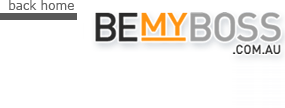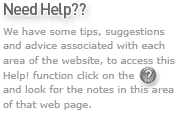Your interview – What to Expect and What to Do!
The first thing to know is that most managers and supervisors have never been trained in techniques of conducting an interview. High on their list is how well you will fit into the team / organisation followed closely by how well you can do the job, this means that just as importantly as showing them what you can DO, you must also show them WHO you are.
When you walk out of an interview you need to be able to say confidently “I showed them exactly who I am and what I am capable of, if they don't want me then that is probably best as I would not fit in to the team or be able to perform at the role”. To be able to do this effectively, you will need to follow all of our advice sections listed in the Look Like a Pro page.
PERCEPTION IS EVERYTHING!
Your character and ability will be judged from the moment you reply to the first job offer or speak for the first time!!
A checklist for ensuring that you don't give off the wrong impression:
-
Arrive at the interview early!
Don't just rock up late, if you anticipate you will be delayed call to warn your prospective employer, this will show that you are conscientious, organised and reliable, and will also ensure that you aren't flustered and preoccupied during your interview.
Bring a copy of your resume and references if available
Try writing a checklist so that you don't forget anything on the day and don't carry loose papers, make sure they're in a folder or briefcase which is clean and presentable. Have everything packed at least a day before in case something goes wrong (like printer running out of paper).
Shake hands when you meet the interviewer
A survey has shown that a firm hand shake (not too hard and not limp) gives the impression of strength or character and confidence. This will get you off to a good start with the interviewer/s.
Make eye contact
This is an extremely important piece of body language which shows respect. It is said that if you can't look someone in the eye then you have something to hide, the last thing you want is your interviewer thinking you are not trustworthy!
Wait to be asked to sit down
We all get very nervous but remember your manners always; this goes a long way to a good impression.
Stay Calm
Before the interview think about what relaxes you. Visualisation techniques are extremely effective, you could picture your favourite holiday destination or you could think on to an event coming up imagining what you will get up to or simply picturing your kids may light that internal fire and make the current situation seem less daunting. Just remember though, there is such a thing as TOO relaxed, don't stay in that state, when you feel the nerves coming up just run your picture for a few seconds till the nerves subside and get on with the task at hand.
Be confident but not so confident that you appear cocky
Everyone handles stress differently, KNOW yours! Do you go quiet or do you tend to talk too much. Make sure you have strategies for overcoming this, our first articles on research and planning will help with this but there is still a massive difference between confident and cocky. Bragging all interview long about how great you are won't win any points. Answer the questions just as they ask them, saying only enough to be clear but not too little that they have to keep prompting.
Follow our section on 'Practicing', this is key to overcoming this issue.
Engage the person who is interviewing you
Remember, you also want to know whether YOU want to work for them. List down some things that you would like to find out so that where applicable you can engage your interviewer to discuss the position, the company or his/her personal pursuits. Don't overdo this, it can come across as cheesy and obvious. And DON'T mention money until right at the end. Preferably leave this out until you actually have the job.
Be responsive and answer the questions fully.
If you do not fully understand the question, don't ever feel shy about asking the interviewer to clarify. Not only will this ensure that you don't run off on a tangent but it will show that you have good communication skills.
Make sure you take the time to gather your thoughts before answering the question.
Try taking a silent (or mental) breath which will help you shift focus from them and on to you.
Have some questions of your own ready
Expert Kirch says “it's profoundly disappointing in interviews to get to the end and say 'Do you have any questions I can answer for you?' and they say, 'Nope, I think you answered them all', and that's the end of it. It's just really disappointing and reflects negatively on the candidate.”
Think up some questions you may have about the company or position, note these down before the interview, even write them on a sheet of paper, it is ok to ask the interviewer whether you can consult your notes to check whether they've covered off everything you wanted to know. This will show that you've actually given it some thought and will look like you have excellent planning, organisation and communication skills.
Kirch says “include developing a tough question to finish things off in your preparation”. He states “I just love it when someone asks a really difficult questions, something that takes some guts to ask, asking really well-thought-out questions that show you know the business that the interviewer is in”. He says that it shows that you “know their company to some extent, and you've thought about your question. It all goes back to preparation (as said in previous sections Make sure you do your research!!), and it tells the interviewer you thought about this interview before you walked in the door.”
After the interview thank the interviewer for taking the time to meet with you and shake hands



